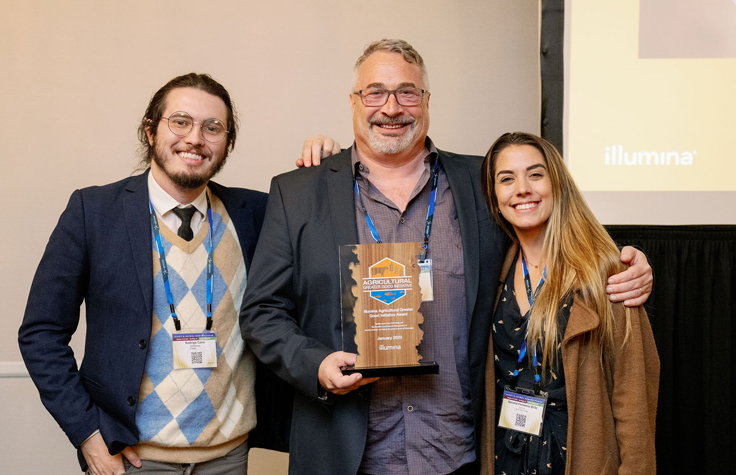
January 19, 2023
As nicknames go, marine algae got the short end of the strand. The informal term “seaweed” makes it sound like an undesirable pest. And it may seem like one, if you’ve only encountered it as a drying clump on the beach or a slimy surprise in the waves. But look beneath the surface and you’ll find that “seaweed” belies a dazzling variety of creatures: the billion-year-old ancestor of all plants, source of half the world’s oxygen, and a crucial player in the future of global food production, microbiology, and medicine.
The United Nations recognizes seaweed cultivation as part of its Sustainable Development Goals: As food, it’s a major source of protein, vitamins, and iron; and crops not grown for food can be excellent absorbers of carbon dioxide and pollutants, reducing ocean acidification and capturing greenhouse gas. Certain compounds extracted from it, like carrageenan and agar, have a multitude of further scientific applications, from a growth medium for other microorganisms to a vegan alternative to gelatin in desserts. But some of the regions with the greatest seaweed biomass—like Brazil, with its 8000 kilometers of coastline—have yet to take full advantage of this potential.
The Brazilian aquaculture industry’s ability to grow is hampered by a scarcity of genetic sequencing data from relevant seaweeds, especially elkhorn sea moss, or Kappaphycus alvarezii. But the Brazilian Consortium for Phycogenomics (BCP) is determined to change that. The nonprofit project was formed in 2021 by researchers from SENAI CETIQT in Río de Janeiro, the Federal University of Rio de Janeiro, Sao Paulo State University, and seven other universities and companies; it’s also making progress in a research collaboration between Scott Fahrenkrug at biotechnology research firm Forjazul and Michael Roleda at the Marine Science Institute at the University of the Philippines, where K. alvarezii farming first began.
“The phycogenomics project has a special place in my heart,” says Rodrigo Cano, business analyst at SENAI CETIQT and project manager for BCP. “We can see a clear path from sequence data to the development of new cultivars and informed management strategies that will directly impact small stakeholders that produce most of the seaweed in Brazil.”
Announced this week at the Plant and Animal Genome conference in San Diego, SENAI CETIQT is the latest recipient of Illumina’s Agricultural Greater Good Initiative grant, an award given annually since 2011 to projects that support research into food security and sustainability. The grant will enable BCP to generate a high-quality genome sequence of K. alvarezii and make it publicly available. Using an Illumina NextSeq sequencer, the consortium will collect trillions of base pairs’ worth of transcriptome data for it and other seaweeds, probing the protists to discover the secrets of how they grow and synthesize their useful biomolecules.
K. alvarezii alone is a model organism for phycogenomics, and insight into its biostimulants and carbon sequestration mechanisms could advance environmental efforts and support farmers worldwide. Fahrenkrug explains that “molecular genetic methods can be used to find and protect genetic diversity, and in the face of changing climate conditions, can contribute to the sustainability and resilience of seaweed production, and enable strategies to leverage its already tremendous capacity for fixing carbon for the global blue economy.”
One of the oldest branches on the tree of life is a key to humanity’s future. Keep that in mind next time you snack on some sushi.
The application period for the next Illumina Agricultural Greater Good Initiative is now open. Click here to learn more.


